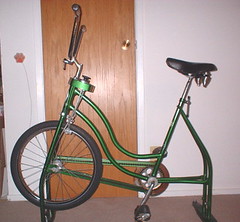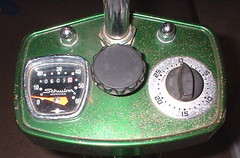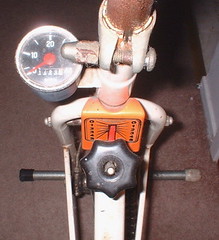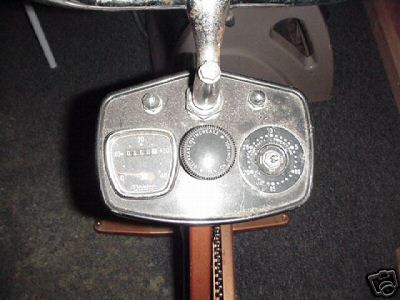From a MySpace.com
forum on health.
Dangers of a Low Carb DietBy: Greg Landry
Low carb (carbohydrate), high protein diets are the latest dieting craze. However, before you jump on the band wagon, you may want to consider a few things:
1. Low carb (ketogenic) diets deplete the healthy glycogen (the storage form of glucose) stores in your muscles and liver. When you deplete glycogen stores, you also dehydrate, often causing the scale to drop significantly in the first week or two of the diet. This is usually interpreted as fat loss when it's actually mostly from dehydration and muscle loss. By the way, this is one of the reasons that low carb diets are so popular at the moment - there is a quick initial, but deceptive drop in scale weight.Muscle loss? LOL! I've gone from 37.8% body fat to 24%. I've actually gained muscle and can lift much heavier weights than before.
And I've lost 60 pounds. Is that all water?
2. Depletion of muscle glycogen causes you to fatigue easily, and makes exercise and movement uncomfortable. Research indicates that muscle fatigue increases in almost direct proportion to the rate of depletion of muscle glycogen. Bottom line is that you don't feel energetic and you exercise and move less (often without realizing it) which is not good for caloric expenditure and basal metabolic rate (metabolism).You'll have to tell the trainer I fatigue easily because he told me I was overtraining and needed to CUT BACK on the cardio I was doing. I have tons of energy and feel great!
3. Depletion of muscle glycogen leads to muscle atrophy (loss of muscle). This happens because muscle glycogen (broken down to glucose) is the fuel of choice for the muscle during movement. There is always a fuel mix, but without muscle glycogen, the muscle fibers that contract, even at rest to maintain muscle tone, contract less when glycogen is not immediately available in the muscle. Depletion of muscle glycogen also causes you to exercise and move less than normal which leads to muscle loss and the inability to maintain adequate muscle tone.Where does he get this stuff? I am much more toned than before. In fact, a couple people at work have commented how toned I look. What are muscles made of after all? Protein, right? So a high-protein diet PRESERVES muscle mass.
Also, in the absence of adequate carbohydrate for fuel, the body initially uses protein (muscle) and fat. the (sic) initial phase of muscle depletion is rapid, caused by the use of easily accessed muscle protein for direct metabolism or for conversion to glucose (gluconeogenesis) for fuel. Eating excess protein does not prevent this because there is a caloric deficit.With enough dietary protein, your body does not need to use its muscles for protein. A caloric deficit does NOT equal a protein deficit. There are other sources of fuel for the body besides protein.
When insulin levels are chronically too low as they may be in very low carb diets, catabolism (breakdown) of muscle protein increases, and protein synthesis stops.My insulin levels are fine and my doctor is not concerned. As I said, in the presence of dietary protein (as on a high-protein diet), your body will not go after its own muscle. Only in cases of starvation (with no dietary protein) does the body go after its own muscle.
4. Loss of muscle causes a decrease in your basal metabolic rate (metabolism). Metabolism happens in the muscle. Less muscle and muscle tone means a slower metabolism which means fewer calories burned 24 hours-a-day.Metabolic rate goes down on all diets because you're smaller. In take fewer calories to maintain 145 pounds of body weight than 206 pounds. And as I said, I've GAINED muscle.
5. Your muscles and skin lack tone and are saggy. Saggy muscles don't look good, cause saggy skin, and cause you to lose a healthy, vibrant look (even if you've also lost fat).I have saggy skin (only on my tummy) because I've lost 60 pounds. Lack of skin tone...HA. My acne went away so my skin looks better than ever before.
6. Some proponents of low carb diets recommend avoiding carbohydrates such as bread, pasta, potatoes, carrots, etc. because of they are high on the glycemic index - causing a sharp rise in insulin. Certain carbohydrates have always been, and will always be the bad guys: candy, cookies, baked goods with added sugar, sugared drinks, processed / refined white breads, pastas, and rice, and any foods with added sugar. These are not good for health or weight loss. However, carbohydrates such as fruits, vegetables, legumes, whole grain breads and pastas, and brown rice are good for health and weight loss. Just like with proteins and fats, these carbohydrates should be eaten in moderation. Large volumes of any proteins, fats or carbohydrates are not conducive to weight loss and health.I eat the way God designed us to eat - the way the Paleolithic people ate. They didn't have bread and grains. They had vegetables, berries, nuts, some fruit, and lots and lots of meat.
7. Much of the weight loss on a low carb, high protein diet, especially in the first few weeks, is actually because of dehydration and muscle loss.More like excess water and fat. I never realized how bloated I was before. Yike!
8. The percentage of people that re-gain the weight they've lost with most methods of weight loss is high, but it's even higher with low carb, high protein diets. This is primarily due to three factors:Where's the evidence for this? The rate for regain on all diets is about the same. People don't want to change their lifestyle; they want a quick fix.
A. You have lost muscle. With that comes a slower metabolism which means fewer calories are burned 24 hours-a-day. A loss of muscle during the process of losing weight is almost a guarantee for re-gaining the lost weight, and more.This person REALLY needs to get their facts straight because this is untrue.
B. You re-gain the healthy fluid lost because of glycogen depletion.It's not healthy fluid; it's bloating. And you don't regain it if low-carb is a lifestyle.
C. It's difficult to maintain that type of diet long-term.2.5 years and counting for me. Why would I stop? There's so much delicious food to eat!
D. You have not made a change to a long-term healthy lifestyle.I have. The way I used to eat is quite simply, crap, and I will never go back. I feel better. Going back means losing all those health benefits.
9. Eating too much fat is just not healthy. I know you've heard of people whose blood levels of cholesterol and triglycerides have decreased while on a low carb, high protein diet. This often happens with weight loss, but it doesn't continue when you're on a diet high in fat. There are literally reams of research over decades that clearly indicates that an increase in consumption of animal products and/or saturated fat leads to increased incidence of heart disease, strokes, gall stones, kidney stones, arthritic symptoms, certain cancers, etc. For example, in comparing countries with varying levels of meat consumption, there is a direct relationship between the volume of meat consumption in a country and the incidence of digestive cancers (stomach, intestines, rectal, etc.).My cholesterol is fine. I have it tested every summer. Three tests so far and still great results.
And that stuff about kindey stones and everything. I'd like to see PROOF because it isn't true.
Fat is certainly necessary, and desirable in your diet, but they should be mostly healthy fats and in moderation. Manufactured / synthetic "low fat" foods with lots of added sugar are not the answer. Neither are manufactured / synthetic "low carb" foods with artificial sweeteners or added fat. By the way, use of artificial sweeteners has never been shown to aid in weight loss and they may pose health problems. According to Dr. Keith-Thomas Ayoob of Albert Einstein College of Medicine in New York, "In my experience, unless you're willing to throw out decades of research, you cannot ignore that diets chronically high in saturated fats are linked to heart disease, " Dr. Ayoob is also a spokesman for the American Dietetic Association and says that low carb, high protein diets are an attempt at a quick fix and not a long-term lifestyle change.The only unhealthy fat is trans-fat. God gave us the rest and I use what He gave.
10. As someone recently told me, "it must work - people are losing weight". People that are truly losing fat on low carb, high protein diets, are doing so because they are eating fewer calories - that's the bottom line. There is no magic - the same can be done on a healthy diet.Low-carb IS healthy, lol!
11. Low carb diets are lacking in fiber. Every plant-based food has some fiber. All animal products have no fiber. A lack of fiber increases your risk for cancers of the digestive track (because transit time is lengthened) and cardiovascular disease (because of fibers effect on fat and cholesterol). It also puts you at a higher risk for constipation and other bowel disorders.I'm regular for the first time ever. I eat about a pound of fruits and veggies a day, so trust me, I get plenty of fiber.
12. Low carb diets lack sufficient quantities of the the many nutrients / phytonutrients / antioxidants found in fruits, vegetables, legumes, and whole grains, necessary for health and aiding in prevention of cancer and heart disease. In fact, you need these nutrients even more so when you're consuming too much fat as is often the case on a low carb high protein diet.Not according to FitDay. I am getting just about all I need from food, as well as taking a multi-vitamin (which I feel all people should).
And since when do we not eat fruits and vegetables and legumes? Peanuts are a legume and I eat them, and I eat plenty of fruits and veggies. So really, this person needs to read a book on the topic because he doesn't know what he's talking about. All low-carb diets stress fruits and veggies.
13. Amercans (sic) already consume more than twice the amount of protein needed. Add to that a high protein diet and you have far too much protein consumption. By the way, most people don't realize that all fruits, all vegetables, all whole grains, and all legumes also contain protein. Animal products contain larger quantities of protein, but that may not be a good thing. Excess dietary protein puts you at a higher risk for many health problems: gout (painful joints from high purine foods which are usually high protein foods), kidney disease, kidney stones, osteoporosis (excess dietary protein causes leeching (sic) of calcium from the bones). By the way, countries with lower, healthier intakes of protein also have a decreased incidence of osteoporosis.So on the one hand are muscles are wasting away, but on the other, we eat too much protein. Which is it? You can't have both since muscle is MADE of protein.
14. Low carb, high protein diets cause an unhealthy physiological state called ketosis, a type of metabolic acidosis. You may have heard the phrase, "fat burns in the flame of carbohydrate". Excess acetyl CoA cannot enter the Krebs Cycle (you remember the old Krebs Cycle) due to insufficient OAA. In other words, for fat to burn efficiently and without production of excess toxic ketones, sufficient carbohydrate must be available. Ketosis can lead to many health problems and can be very serious at it's extreme.Ketosis is not dangerous. He's confusing it with ketacidosis, which is high blood sugar in diabetics. Low-carber don't have high blood sugar so it's impossible for that to happen to us. Ketosis happens to almost everyone every night when we fast for 8 hours while we sleep. Ketones are not toxic and I challenge anyone to show that they are (excepting diabetics, who are in ketoacidosis).
15. Bad breath. Often called "keto breath" or "acetone breath", it's caused by production of acetones in a state of ketosis.And his point is...? Besides, not everyone has this side effect. I didn't.
So why the low carb, high protein craze? I believe there are several reasons.
A. Weight loss (mostly muscle and muscle fluid) is often rapid during the first few weeks. This causes people to think they're losing fat rapidly.I have lost fat and that's a scientific FACT.
B. It gives you "permission" to eat the "bad foods": bacon, eggs, burgers, steak, cheese, etc., and lots of fat.And fruits and vegetables. He keeps forgetting that.
C. Many see it as the new "magic" they've been looking for, although it's been around, in various forms, since the 1960's.It's been around since the 1800s. A guy named Banting wrote the first book after his doctor put him on a low-carb diet and it worked. That book is available for free online today.
If anyone wants to know the TRUTH, I'm willing to talk and recommend book by medical doctors and nutritionists who know what low-carb is really about. But this no fruit or veggies and all meat and fat is just plain WRONG. Read a low-carb book. Any book. Challenge your biases. I dare you. It will prove this person wrong in a heartbeat.
Technorati tagged: atkins, diet, atkins diet, low carb, weight loss, health, health and wellness, obesity, obese, overweight, fat, exercise, fitness
 Weight: 145.2
Weight: 145.2




























